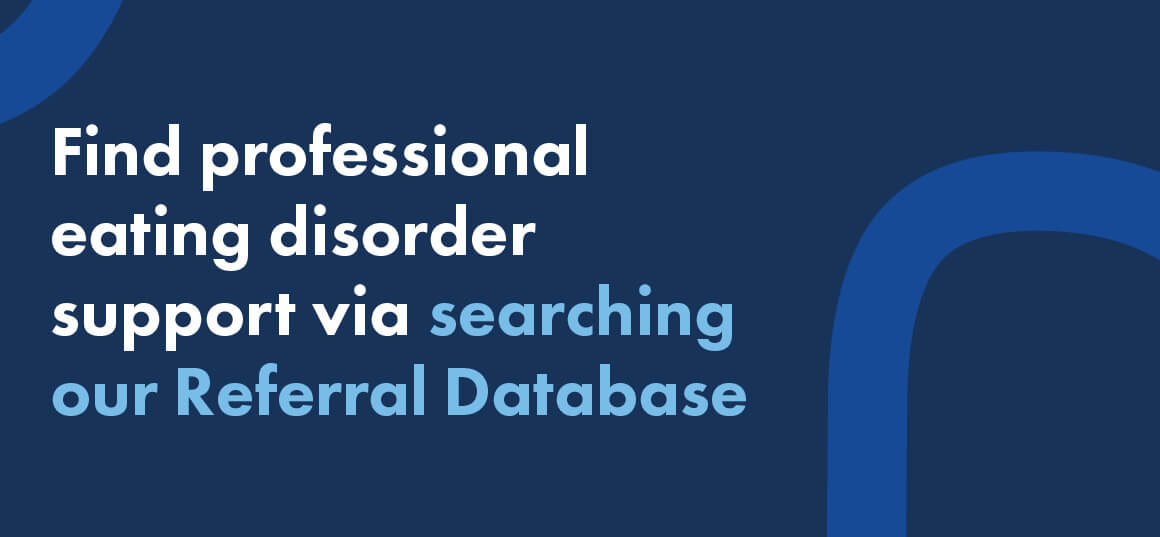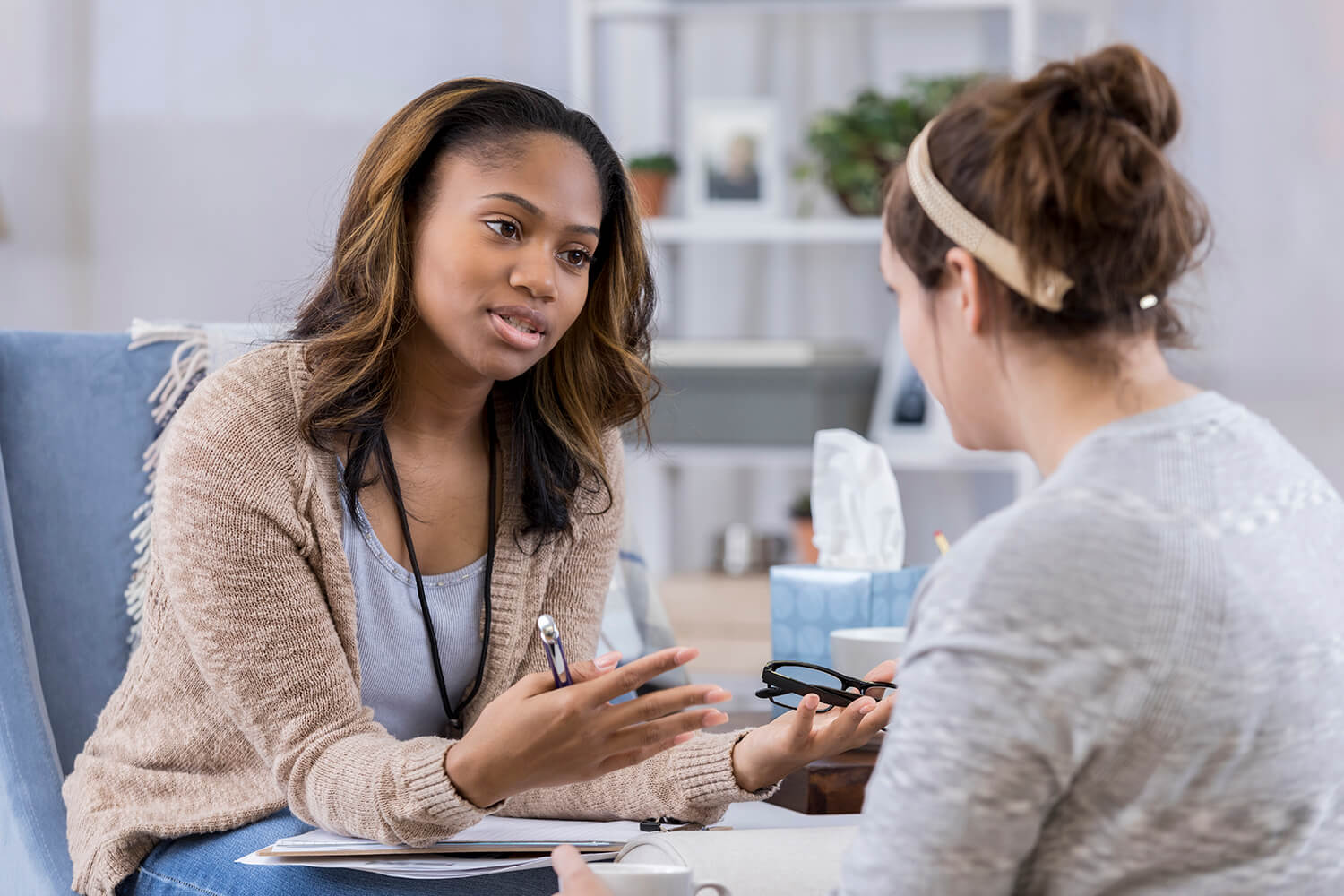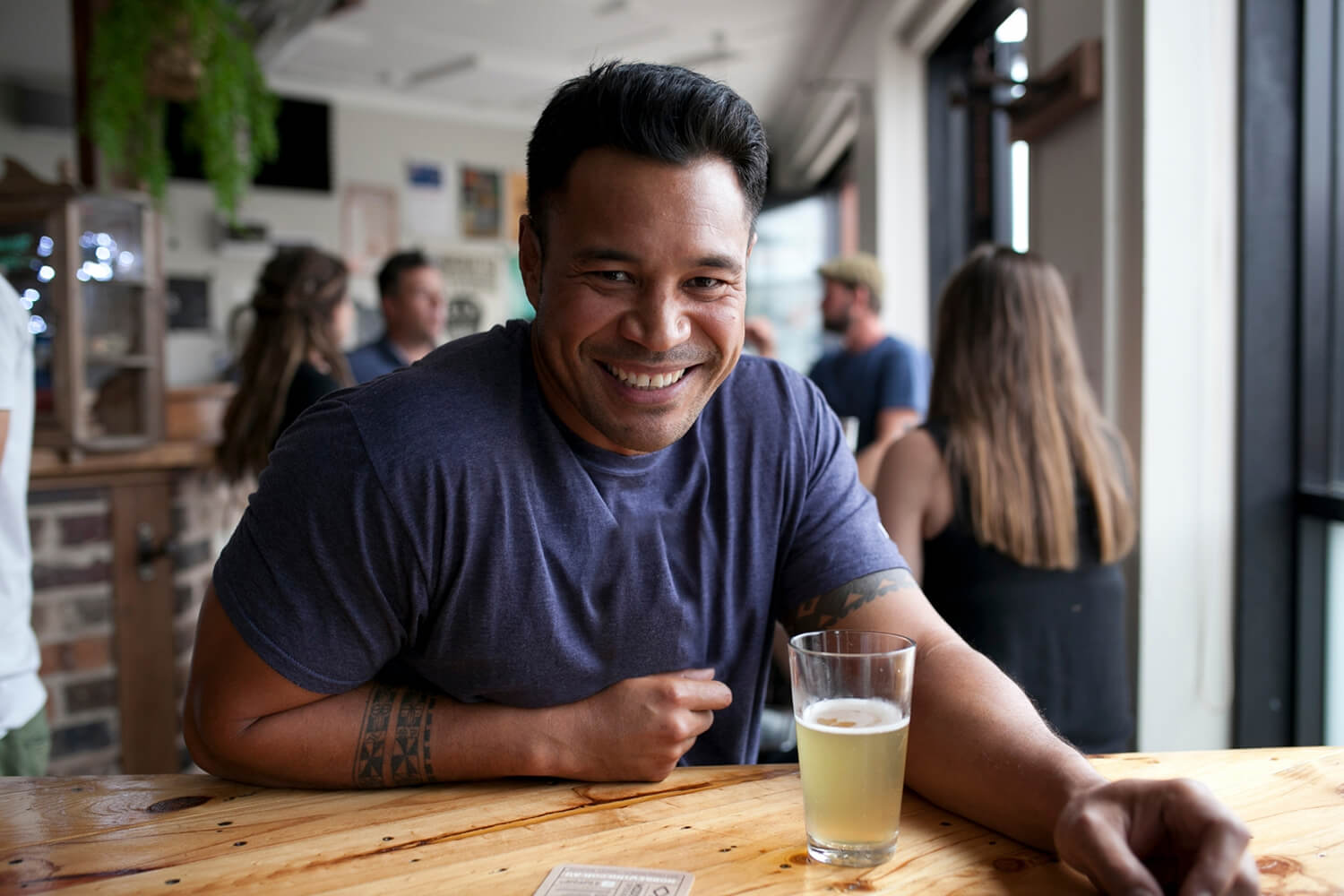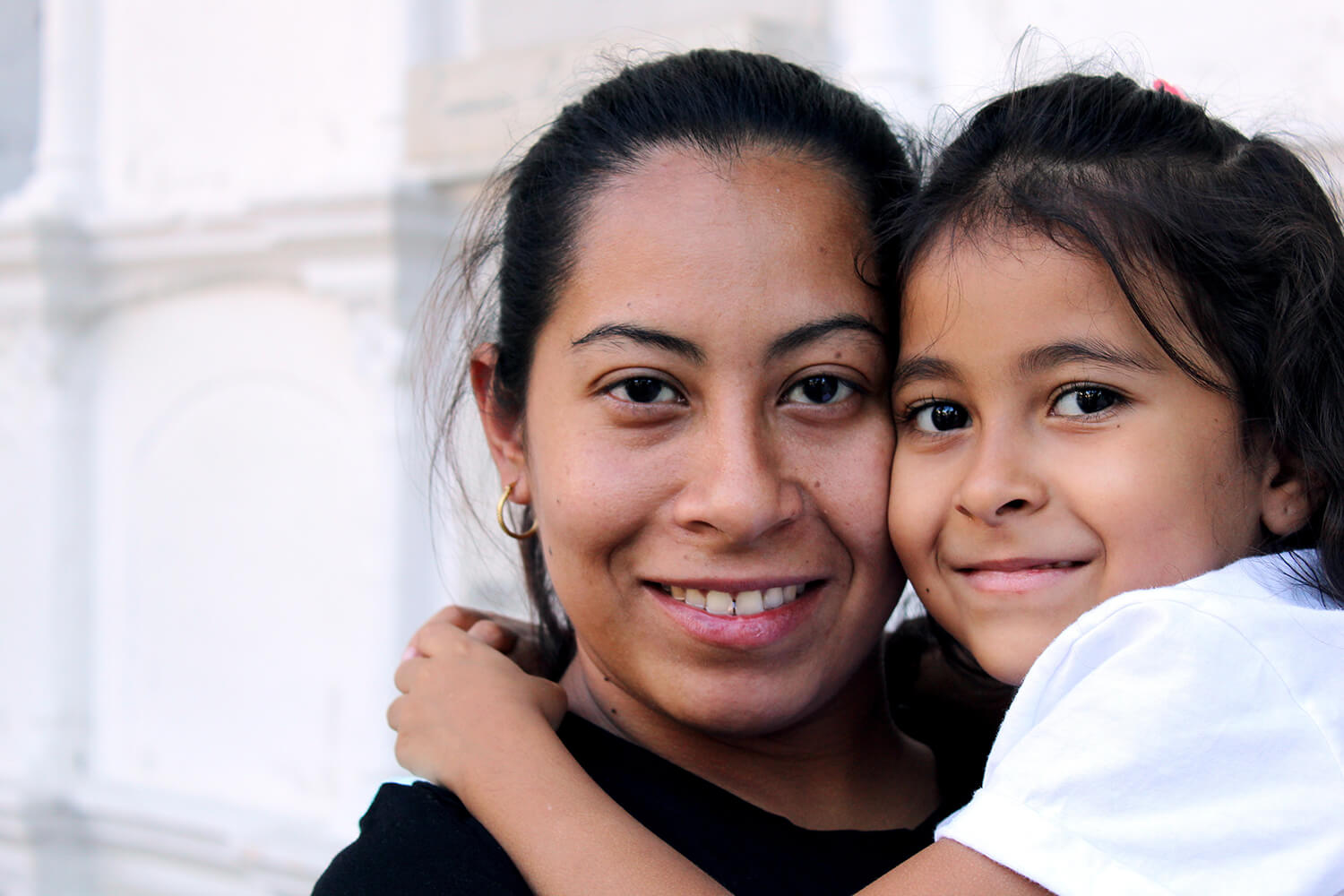Simple acts to make your loved one’s life easier when they have an eating disorder
Eating disorders can be incredibly isolating, and families and carers can have a pivotal role in an individual’s recovery.
But it can sometimes be difficult to know how best to support your loved one. Listening to and learning from those with lived experience as to how they would like to be supported is paramount. This week (4-10 September 2023) is Body Image and Eating Disorders Awareness Week (BIEDAW), an annual advocacy campaign dedicated to spreading awareness about these complex issues, so more people can understand eating disorders and those impacted can get the support they need.
We asked our Lived Experience Network, the Butterfly Collective, to share simple acts that parents, carers, families and friends can do to better support their loved ones experiencing eating disorders.
Educate yourself about eating disorders
Eating disorders are still highly misunderstood in our society. Only 1 in 10 people can recognise the signs and symptoms, while 1 in 4 believe eating disorders are a choice or a sign of weakness. These misconceptions can be damaging to people in recovery, so if you have a loved one with an eating disorder, it can really help to educate yourself about these mental illnesses.
- “Educate yourself. Don’t come into it thinking you know what discorded eating experiences look like because you’ve seen one news report. It isn’t as simple as ‘eating a balanced diet and getting over it’, one good day doesn’t mean that tomorrow will look the same. Please have patience, we can feel so much guilt and we just need that kindness and support”. – Caitlin, she/her, 30, VIC
“A simple act loved ones can take is being educated around what it means to have an eating disorder and how to help/care for someone that is in the throes of it and in recovery.” Courtney, she/her, 39, QLD
- “Something that would really help is for family members to be more aware of how eating disorders work and what it is like for someone with an eating disorder. I feel that some members of my family don’t really understand the why’s behind my eating disorder behaviours and it is difficult for me to explain them and what I am thinking/feeling when I am distressed about my body and diet. I feel that this is partially due to the fact that when I went through intense therapy for my eating disorder, I was already over 16 and so my family were not really included in the treatment process/made to feel as though they shouldn’t be a part of it at times. I feel that, although family therapy approaches are normally only used for those about 16 and under, it would be helpful to implement it in later years and even for adults but perhaps in a different form (e.g. you may not live at home anymore or may be more independent so having meal support from say, parents, may not be required or appropriate). I feel that, especially as family is for life and also because a lot of people are living at home longer, involving families and educating them on eating disorders as well as clinicians providing face-to-face support with communication between families and patients (e.g. when a patient is trying to explain their feelings and reasons for their behaviour to their family members) would be incredibly helpful in therapy for both parties. This enhanced understanding would increase families’ ability to aid in recovery as well as know what is appropriate to say or do around someone with an eating disorder (e.g. not comment on diets or what they feel is healthy and so on)”- Amelia, she/her, 26, SA
Here are some helpful places to start:
- Eating disorders explained – We break down different eating disorder diagnoses, what can cause an eating disorder and treatment that can help.
- Butterfly’s Let’s Talk Podcast – Listen to people with lived experience, experts, clinicians and researchers share information about eating disorders and recovery.
- The eating disorder stepped system of care – People will require different levels of treatment and support, at varying levels of intensity and frequency, across their illness.
Understand that recovery won’t happen overnight
Eating disorder recovery is not linear; people may have setbacks and relapses, and that is completely normal. Some people may also experience ambivalence in wanting to recover, and this is normal too. Use our guide to understanding eating disorder recovery ambivalence but recognise this will be different for every individual.
- “Navigating eating disorder recovery is a tough, enduring process that feels like there’s no ending. Being in anorexia recovery presents hyper-fixation on my body’s changes and the way in which my brain functions to responses from my friends and family. Actions that my loved ones can do is very simple, be kind, compassionate and know that this is a long journey and recovery won’t happen over night. I like to say this to loved ones that don’t quite get the severity of the illness, ‘I did not gain an eating disorder overnight hence why I cannot recover over night’. Simple actions can include setting boundaries and letting people know that ‘positive comments’ like ‘you look so healthy, I’m so proud of you’ can be manipulated by our ED brains and drive reasons to return to ED behaviours. Comments should not involve appearances, weight, size or shape as our bodies don’t define who we are or what position we are within recovery”. – Imogen, she/her, 17, NSW
Take the focus off the eating disorder
An eating disorder can be all consuming, so families and carers can support their loved ones by reminding them about other parts of their life. This can also help provide motivation for recovery and ensure they know that there is life beyond an eating disorder.
- “Show patience, love and acceptance. Regularly suggest ‘fun’ or ‘novel’ activities to your loved one that are completely unrelated to food, like exploring a new park/suburb/bit of nature. I found that doing novel things really helped me to explore areas of my personality that my ED had shut down, and gave me the encouragement to try new and different things. Remind and encourage them to engage in acts of self care and/or help make self-care suggestions for them; take a bath, pop on a face mask, watch a favourite movie, go watch some live music, engage in arts/crafts, knitting, riding a bike- anything!” – Katelyn, she/her, 36, SA
- “Patience is the greatest gift, and providing a safe space can make a world of difference while experiencing an eating disorder and/or going through eating disorder recovery. Actively listening without judgement is incredibly helpful too and makes you feel cared for and not alone. Distraction can be fantastic, helping to distract with art activities or getting outside or going to the movies can be powerful and healing when going through something difficult.” -Chey, she/her, 29, QLD
Be kind, compassionate and validate their experience
It’s important to meet your loved one where they are at in their unique journey and approach them with compassion, kindness and the validation that this is an incredibly difficult illness to go through. Let your loved one know that you realise they are not ‘choosing’ to experience this. An eating disorder is a severe psychological illness that is caused by a combination of sociocultural, biological and psychological factors.
- “Validation is the most essential thing for me personally that I need during eating disorder recovery. Not in a sense of affirming disordered behaviour or encouraging it, but instead acknowledging how hard recovery is and giving praise when it’s needed. The worst part of having an eating disorder, is that nobody knows how hard it is to recover, and the disorder itself is heavily stigmatised. Being heard, receiving words of affirmation, and taking the time to be there for the uncomfortable conversations are some the most vital forms of support a person in recovery needs. As for those who have no yet started recovery, offering patience and a safe space to externalise feelings is such a special thing you can do for a loved one dealing with an ED. Eating disorders can develop as an outlet for unexpressed feelings, if you as a support person can help release some of that burden of additional stress, it makes life with an eating disorder just that little bit more tolerable”. Matilda, she/her, 17, NSW
“Always validate our experience by letting us know you see our pain, fear and how deep our shame runs. Understand that what looks like ambivalence, is often actually just sheet terror of letting go of unhelpful coping strategies that have comforted us, while simultaneously destroying us, for a long time. We don’t understand it ourselves most of the time, so it’s hard to explain to someone else. It is in these times especially, we want you to know we are always trying, even when it looks like we’re not. And always hold HOPE, especially when we have lost hope for ourselves.” – Annie, she/her, 48, QLD
Get support for your loved one
You don’t have to care for your loved one alone – professional support is vital for recovery.
To find qualified eating disorder practitioners and professionals closest to your area, search Butterfly’s Referral Database.
For advice, information or just someone to chat to, you can also connect with Butterfly’s National Helpline on 1800 ED HOPE (1800 33 4673), chat online or email support@butterfly.org.au. We’re here for carers and families, as well as individuals, 7 days a week, 8am-midnight (AEST/AEDT).
Support for carers
Carers need care too – our research found that the greatest issues related to being a carer included impacts on the individual’s mental health (83%), their sleep (76%), their relationships (76%) and their social life (71%), with 78% of carers delaying or leaving their career or study to provide the level of support needed. Connecting to other carers can help reduce isolation and provide helpful skills, from those who have been there before, to help your loved one.
Butterfly Carer Support Groups
Butterfly has a number of support groups available for carers, either via webchat or over Zoom. Our support groups are facilitated by people with lived experience who have either recovered from their own eating disorders or cared for someone who has.
Butterfly’s Understanding Eating Disorder Recovery – Webinar workshop for carers
Held frequently throughout the year, Butterfly’s Understanding Eating Disorder Recovery (UEDR) Webinar program for carers is a free, 6 week workshop designed to equip carers with the skills and knowledge to help their loved ones recover from their eating disorder. Our next workshop starts October 2023 – secure your place by registering below.
Eating Disorders Families Australia (EDFA)
EDFA is the national organisation providing support, education, and advocacy services for carers and families impacted by an eating disorder. EDFA runs a number of support groups, education sessions and resources for carers.
Share your lived experience
We’re very grateful for the people with lived experience who shared their insights, opinions and experiences to inform this blog. If you’re inspired or motivated to share your own experience of an eating disorder, whether it’s a personal experience or caring for someone you know, join Butterfly’s Lived Experience Network, the Butterfly Collective. This community is designed to help Butterfly to amplify the voice of people with a lived experience by inviting its members to take part in activities which will help to shape our work.



















